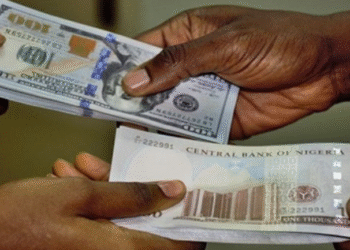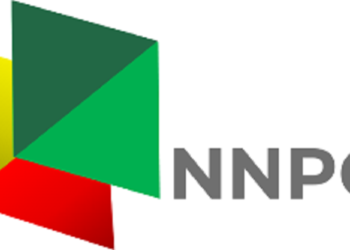The Bank of America’s insights on the value of the naira and its potential growth amidst foreign exchange reforms and efforts to curb oil theft in Nigeria and the impact on oil production, current account surpluses, and the country’s economy is in the front burner.
The Bank of America (BoA) has recently shared its analysis, indicating that the value of the naira is projected to settle at N680 to the dollar by the year-end. This assessment signifies a significant shift from an overvalued status to an undervalued state for the currency. The transition is attributed to the Nigerian government’s recent foreign exchange reform. Additionally, BoA speculates on President Bola Ahmed Tinubu’s potential course of action, aiming to address the prevalent issue of oil theft that has been plaguing the nation.
Predicted USDNGN Fair Value And Future Outlook
As per Bank of America analysts, the projected fair value for the USDNGN rate is now 680 per USD, an increase from the previous estimation of 580. However, it is anticipated that the actual trading value will surpass this level, reaching around 700 by the end of the year. Subsequently, in early 2024, the rate is expected to stabilize between 650 and 680. BoA emphasizes that the transition period necessitates time to synchronize rates and unlock further USD inflows into the formal market. Once the dust settles, the analysts anticipate a stronger and appreciating value for the naira.
Potential Impacts Of Oil Theft Curbing Efforts On Crude Production
Bank of America highlights the significance of President Tinubu’s potential actions in combating oil theft as a crucial step forward. The suggested approach involves implementing reforms within the security sector and involving host communities situated near oil pipelines. If successfully executed, this strategy could lead to a substantial increase in Nigeria’s crude oil production. The Bank of America predicts that production levels may rise to 1.6 million barrels per day (bpd) within a span of 12 to 18 months, surpassing the current output of 1.2 million bpd. However, these estimates are subject to OPEC limitations.
Prospects For Enhanced Oil Production And Economic Growth
Bank of America expresses optimism regarding the feasibility of increasing crude oil production to 1.6 million bpd within the next 12 months, representing a significant structural improvement compared to the current levels. Taking into account condensates, the total oil production in Nigeria could reach 1.8 million bpd within two years, a level comparable to pre-pandemic figures. It is important to note that Nigeria heavily relies on hydrocarbons, which contribute to approximately 90 percent of its exports, at least half of fiscal revenues, and around 6 percent of the country’s GDP.
Potential Benefits Of Increased Oil Revenues And Non-Oil Revenue Focus
The Bank of America suggests that higher oil revenues, combined with intensified efforts to generate non-oil revenue, could help alleviate the burden of high debt service. By diversifying income sources and reducing dependency on hydrocarbons, Nigeria can strengthen its economic stability and resilience.
This comprehensive analysis offers insights into the Bank of America’s observations on the value of the naira, the potential impact of curbing oil theft, and the prospects for increased crude oil production in Nigeria. By addressing the challenges and leveraging the nation’s resources, Nigeria can work towards a more robust and sustainable economy.
Achieving Current Account Surpluses And Economic Stability
Bank of America highlights the potential for consistent current account surpluses over the medium term through higher oil exports and a liberalized import regime. The projected increase of $12 billion in oil exports and a $10 billion rise in non-oil imports could significantly contribute to achieving this goal. By maintaining this positive momentum, Nigeria can strive towards economic stability and reduce its reliance on volatile external factors.
Strengthening Security Sector And Involving Host Communities
To effectively combat oil theft, Bank of America suggests that President Tinubu should focus on implementing reforms within the security sector. Strengthening security measures along oil pipelines and ensuring the involvement of host communities in the protection of these vital assets can help deter criminal activities and safeguard Nigeria’s valuable oil resources. This concerted effort has the potential to restore confidence in the sector and attract further investments.
Impact On Crude Oil Production And National Revenue
The projected increase in crude oil production from 1.2 million bpd to 1.6 million bpd, and potentially even 1.8 million bpd when considering condensates, holds significant implications for Nigeria’s national revenue. Higher production levels directly translate into increased oil revenues, enabling the government to invest in critical sectors such as infrastructure, healthcare, education, and social welfare programs. Moreover, with enhanced revenue streams, Nigeria can reduce its debt service burden and allocate resources towards economic diversification initiatives.
Diversifying Revenue Sources And Economic Resilience
While Nigeria heavily relies on hydrocarbons, there is a growing recognition of the need to diversify revenue sources to enhance economic resilience. Bank of America emphasizes the importance of intensifying efforts to generate non-oil revenue, which can be achieved through various means such as taxation reforms, encouraging private sector growth, and promoting sectors like agriculture, manufacturing, and tourism. By broadening the revenue base, Nigeria can reduce its vulnerability to fluctuations in global oil prices and create a more balanced and sustainable economy.
Unlocking Economic Potential And Seizing Opportunities
Nigeria possesses immense economic potential, from its abundant natural resources to its youthful population. Realizing this potential requires a strategic and concerted effort to address key challenges and seize opportunities. By implementing effective economic reforms, promoting investment-friendly policies, and fostering a business-friendly environment, Nigeria can attract both domestic and foreign investments, which will serve as catalysts for sustainable economic growth and development.
Bank of America’s analysis sheds light on the undervaluation of the naira following the government’s foreign exchange reform. It also emphasizes the importance of curbing oil theft and the potential for increased crude oil production in Nigeria. By leveraging these opportunities, strengthening the security sector, diversifying revenue sources, and fostering a conducive business environment, Nigeria can unlock its economic potential, achieve sustainable growth, and enhance its position on the global stage.
As Nigeria navigates the challenges and opportunities that lie ahead, it is essential for policymakers, businesses, and stakeholders to collaborate and work towards a shared vision of a prosperous and resilient nation.
Through strategic planning, targeted investments, and effective implementation of policies, Nigeria can pave the way for a brighter future and ensure the well-being of its citizens for generations to come.









